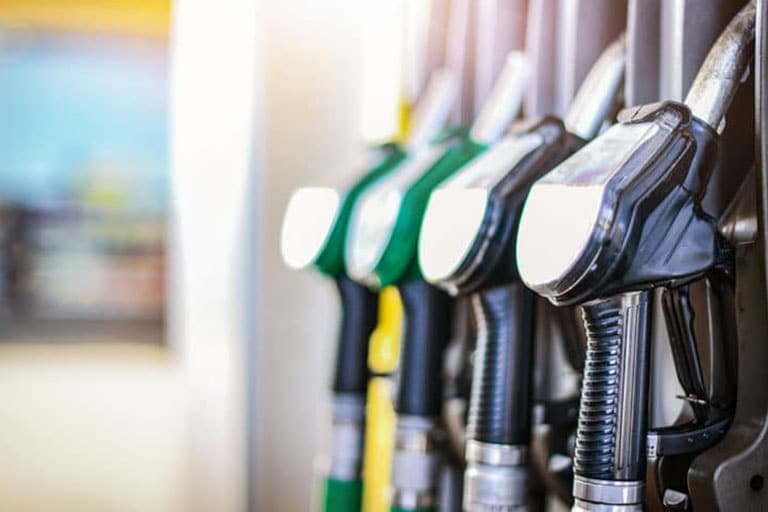Blog
Six Fuel Efficiency Hacks for Haulers
by Routeware Team • July 13, 2022

It’s impossible to control your budget when two of your major line items are skyrocketing. Solid waste haulers are being squeezed by labor shortages and increasing compensation costs on the one hand, and eye-popping fuel costs on the other. Technology provides some opportunities for addressing the truck driver shortage. It can also help increase the efficiency of your fleet in this time of runaway fuel costs.
U.S. diesel prices are the highest they’ve been in decades, having increased more than two dollars since May 2021. With the average solid waste truck traveling 130 miles per day at just 3 miles per gallon, it doesn’t take a degree in mathematics to see how the costs add up. The most promising long-term solution is an all-electric fleet, but that’s still a few years off for many municipalities.
New York City is already testing all-electric refuse vehicles, and there are plenty of advantages to look forward to. Electric is a good fit for vehicles running regular, predictable routes that return to base at day’s end where they can recharge. Fleet managers are also impressed by the regenerative braking that energizes the truck’s battery and the way it glides quietly through neighborhoods.
Upfront costs of electric trucks can be up to 50 percent more than diesel, but savings will pay off, especially if diesel prices remain high. Still, changing out an entire fleet takes time, and that includes installing the necessary charging stations.
Take a bite out of fuel costs with greater efficiency
Today’s budget-busting diesel costs need solutions you can implement today. So today we’re sharing six fuel efficiency hacks for wringing savings out of every gallon of diesel, and a bonus tip for recouping costs:
#1 Maintenance makes a difference: While maintenance will seem like a no-brainer for anyone with fleet experience, the truth is that regular maintenance often gets skipped in favor of other, more pressing tasks. But with skyrocketing fuel costs, now is the time to make time for maintenance. Start every day with proper tire pressure by including a tire check as part of the pre-trip inspection process. Mechanics can also help increase fuel efficiency by making sure trucks are in alignment, topped off with the proper grade of engine oil, and equipped with fresh air filters on a regular schedule.
#2 Drive down fuel costs: Smart driving habits can also help maximize fuel efficiency. The biggest items here are switching engines off when not in use and avoiding hard braking whenever possible. In a trash truck, it can be difficult to avoid low gear and high RPMs, but doing so whenever possible will save fuel. So will staying within speed limits. Most collection vehicles won’t get close to the speed limit most of the time, but keeping an eye on the speedometer on straightaways can help conserve diesel.
#3 The shortest distance between points: Efficient routing that takes into account each neighborhood’s unique dynamics will make sure your fleet is maximizing every turn. Waste-specific route planning software from Routeware doesn’t just optimize street miles. It allows you to incorporate on-the-ground feedback like school bus and train schedules so you can reduce idling times.
#4 Route and reroute: Route optimization isn’t a one-and-done activity. Municipalities are constantly morphing, so routes can quickly be thrown out of balance. Frequent manual re-routing is too cumbersome, and new routes can be slow to implement with paper maps. Route optimization can happen more frequently with Routeware digital route optimization, and new routes can be sent directly to drivers with GPS-guided instructions.
#5 Build team work with communication: Missed carts can be a real efficiency-killer if a driver isn’t informed that a customer called until they’re back at base. A fully connected fleet using in-cab tablets for up-to-the-minute communications allows service personnel to deliver customer requests to the nearest truck, or dispatch a helper vehicle. In-cab digital communications also show their value when a truck goes out of service. Routes can be sent to adjacent teams who can then provide support.
#6 Let your citizens pitch in: You’ve got people sorting paper, cans, plastic, and compost into their designated bins, and they do it because they care – about the environment and a sustainable community. Citizens can be part of the fuel economy solution, too. For example, you can modify schedules to pick up refuse bins less often, as a Routeware customer in the UK recently did. This will reduce routes and encourage better recycling. Residents will appreciate learning how this simple change reduces emissions in their neighborhood.
Bonus: If you’re considering adding fuel subsidies in addition to tackling fuel efficiency, you’ll need a robust back office and billing system that’s custom-built for the waste industry. Routeware has a solution that allows you to build in fuel surcharges with the click of a button.
So, while you’re waiting for your brand new, all-electric refuse trucks to be delivered (it won’t be long now!), smart planning with the right technology can help make a dent in your fuel costs today.
Learn more.
We help municipalities and haulers become more efficient and effective, save time and money, and protect our planet. If you’re ready to find out what today’s technology can do for your organization, let’s talk.